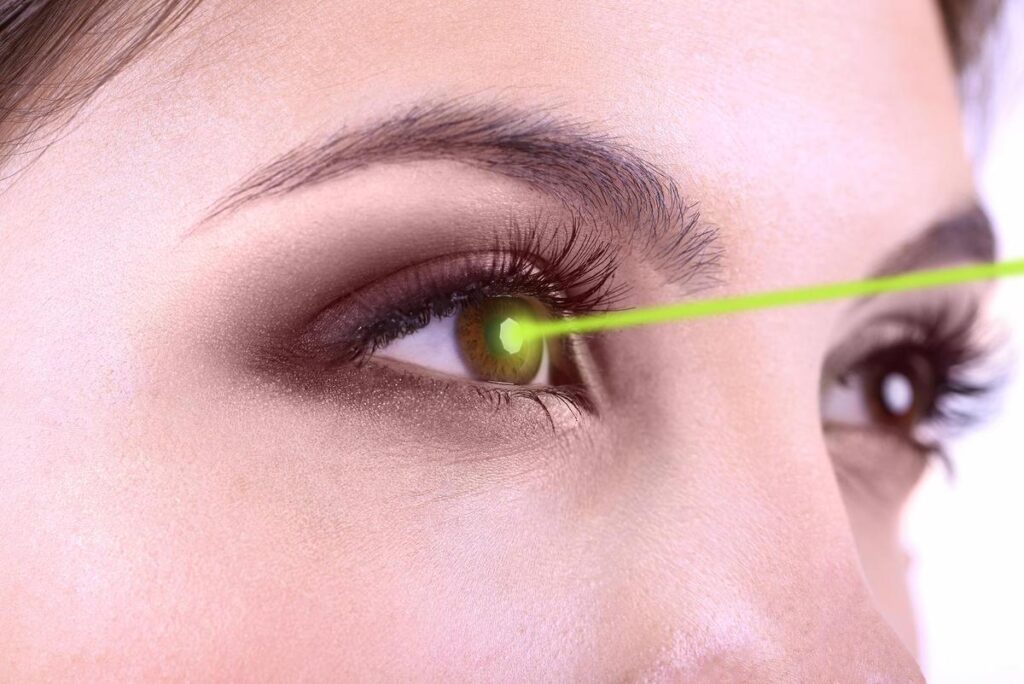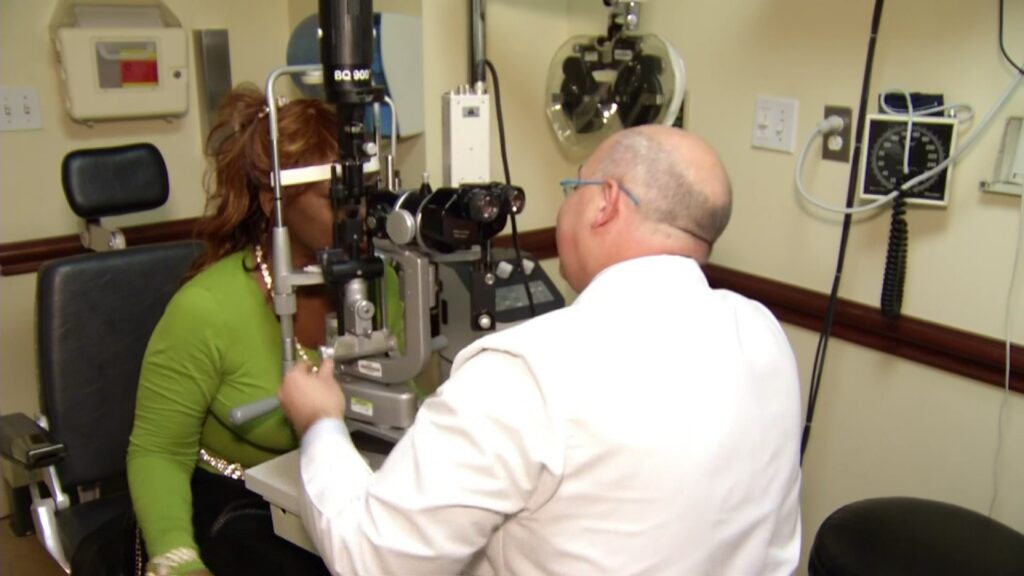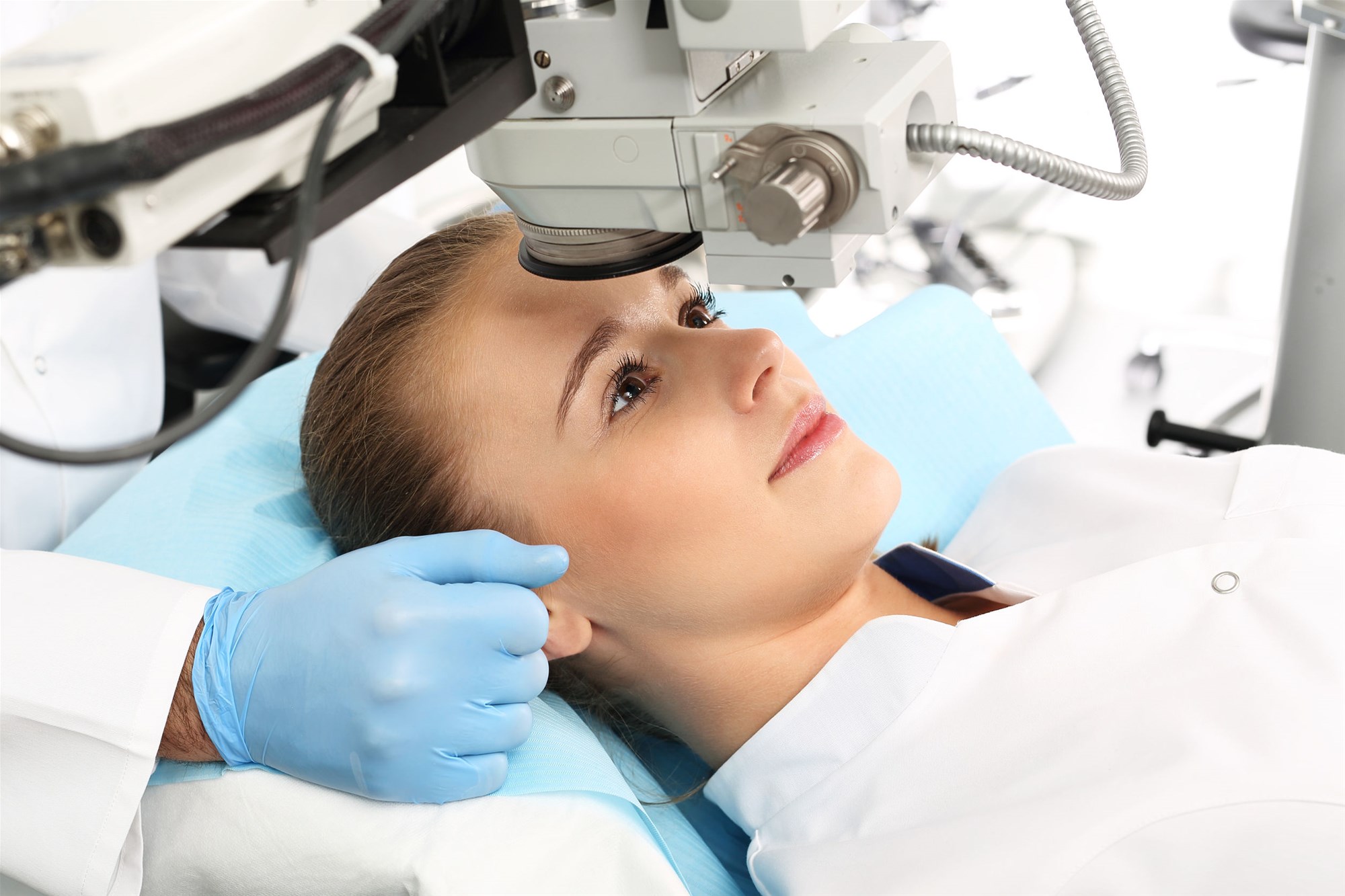Many individuals who are contemplating eye surgery lasik have voiced a number of reservations. One of the most common questions we get is, “What if I blink during my procedure?” One of the most common concerns among prospective applicants is the likelihood of blinking or moving their eyes during LASIK or other laser vision correction procedures. However, the use of modern technology and other protections taken during treatment should ease these concerns.
A patient has little control over whether or not their eye surgery lasik will go awry. We use advanced tracking technology to monitor your eye location, which measures your eye position a thousand times every second. It constantly travels at the same speed as your eye, ensuring that it is perfectly centered. It’s conceivable that the eye may move quickly, in which case the laser will shut off and resume after the eye has stopped moving. If required, we may even turn off the laser manually.
Throughout the operation, numbing drops will be administered to increase your comfort and reduce the probability of you moving your eyes. During the procedure, a small medical device is used to keep the eyelids open in order to prevent blinking. As a result, you won’t be able to shut your eyes or blink throughout the procedure to prevent pain. Your eye will not grow dry and you will not feel the need to blink because we utilize eye drops to maintain the surface of your eye moist. Furthermore, our staff takes many steps to guarantee that you are in the most comfortable position possible throughout your treatment. Keep in mind that eye surgery lasik is a short process that takes just a few minutes to complete, and there are various safeguards in place to reduce the risk of complications. Click here to get about foods to recover from lasik eye surgery.
It’s no surprise that laser surgery is today’s most popular laser vision correction procedure, and for good reason. Continuous advancements in laser technology and ophthalmology have opened the way for surgeries that are both safer and more successful, resulting in better visual outcomes for patients.
Many individuals have phobias, some of which are reasonable and others which are not. Irrational fears, sometimes known as “phobias,” are common throughout medical and surgical procedures. This is mostly owing to the fact that many patients are unfamiliar with either the procedure or the end result.
The scenario is the same as previously when it comes to LASIK surgery. Most people who are considering it are unaware of what to anticipate, which only adds to their worry. Some individuals are so afraid of the surgery that they refuse to have it done on them. Nonetheless, LASIK has become a very common and safe procedure in recent years when performed by educated and experienced physicians. To assuage the majority of LASIK fears, all that is necessary is a basic understanding of how the surgery works, what to anticipate throughout the simple procedure, and the method’s current high success rate.

The most common LASIK fears, and why you shouldn’t be worried about them:
1. The dread of permanently losing one’s eyesight.
Patients who are contemplating LASIK surgery have expressed anxiety that the operation may result in them losing their eyesight permanently. According to the Food and Drug Administration, no cases of blindness have been documented as a consequence of a LASIK procedure. In actuality, the chance of serious complications after LASIK surgery is less than one percent. This 1% will be non-existent due to the scarcity of qualified and experienced surgeons. Furthermore, it is uncommon for your vision to decline after the procedure, and any slight visual anomalies may be quickly corrected with post-operative retreatment.
2. Concerns about the laser colliding with the eye
Who, after all, wouldn’t be scared of being hit by a laser beam? One of the most prevalent concerns among patients is that they will be exposing a very sensitive bodily component, the eye, to a laser. You shouldn’t be afraid, however, since the laser only makes short contact with your eye. There’s no need to worry about things going wrong if you move your head or blink your eye since the treatment is done using cutting-edge technology. Patients who are worried about blinking should rest assured that this will not happen since a special eye retainer is used to keep the eye open during the therapy.
3. The fear of feeling pain throughout the LASIK treatment.
Remove this feeling of fear as quickly as feasible. You will feel very little pain throughout the LASIK procedure. The treatment is carried out while you are awake and takes no more than 5 minutes. Only mild anaesthetic will be needed and numbing drops will be administered to make your eyes comfortable throughout the process. Some folks have reported feeling a little pressure but not being bothered in the least.
Gather all pertinent medical information for your eye surgery LASIK appointment. It’s critical that your doctor has all of the details. Any ocular or medical issues, medications, or allergies should be disclosed. Only the information you willingly submit to your doctor will be used, so be thorough. Don’t attempt to predict what your doctor thinks is important. Let them make their own decisions.

Hydration Prior to Surgery
Water makes about 60% of your body. Water is required for the proper functioning of every cell, tissue, and organ. Water hydrates the body, washes out waste, and aids in the healing process. Because laser eye surgery may cause your eyes to become momentarily dry, hydrate from the inside out. Using over-the-counter artificial tears to deal with post-treatment dryness is also a good idea.
There are no disadvantages to being hydrated! At least eight 8-ounce glasses of water should be consumed each day. Avoid alcohol the day after LASIK surgery since it might dehydrate you and interfere with your LASIK medications.
Can I drink coffee before eye surgery lasik?
You should remain calm and relaxed during the procedure. Caffeine dehydrates you and reduces your ability to relax, concentrate, and remain still while operating.
Is it OK to drink alcohol before LASIK?
Before your laser eye surgery, there are no restrictions on what you may drink. However, we strongly advise you to abstain from drinking alcohol on the day of your treatment. Caffeine and alcohol both dehydrate the body. We want to avoid anything that can aggravate your dry eyes, especially if you have them before LASIK. You will also be given an oral sedative to help you relax before surgery, but it should not be used with alcohol. During the procedure, you must remain alert, and drinking may affect concentration. You’ll take an oral pain reliever right after eye surgery lasik that, like the preoperative sedative, should not be used with alcohol.






